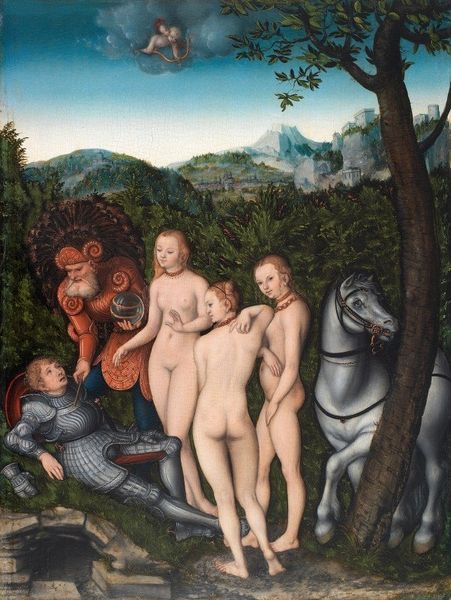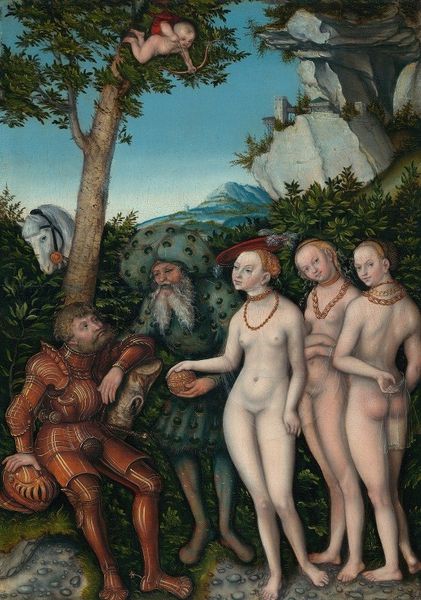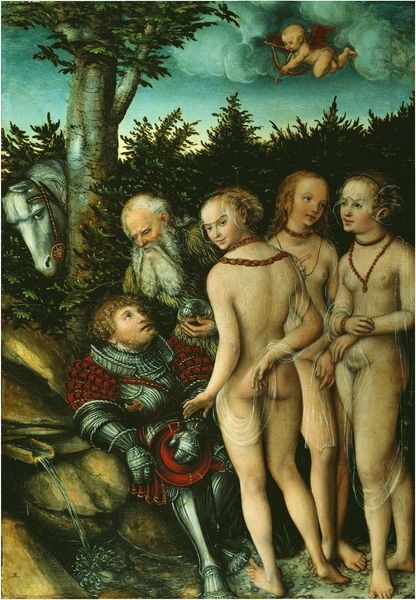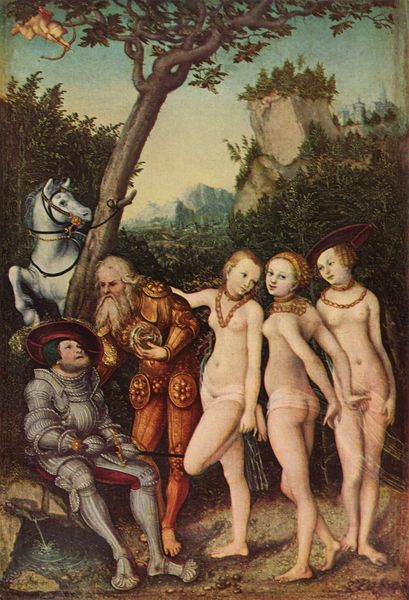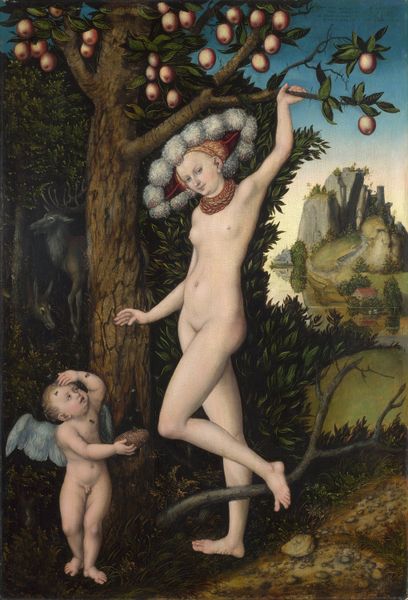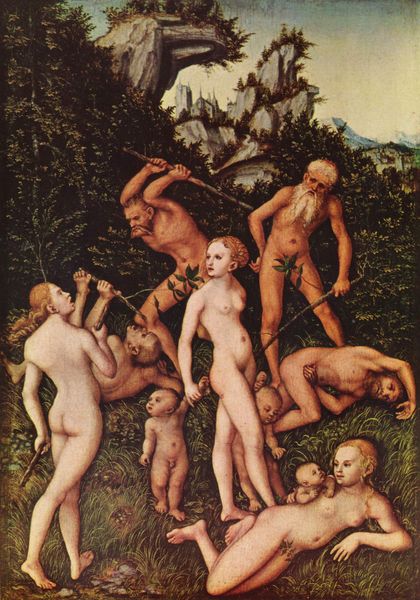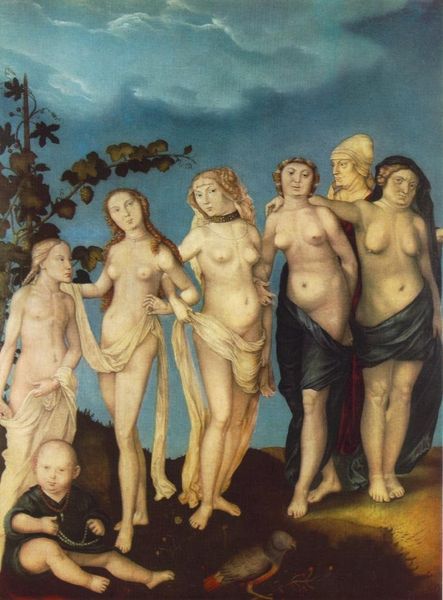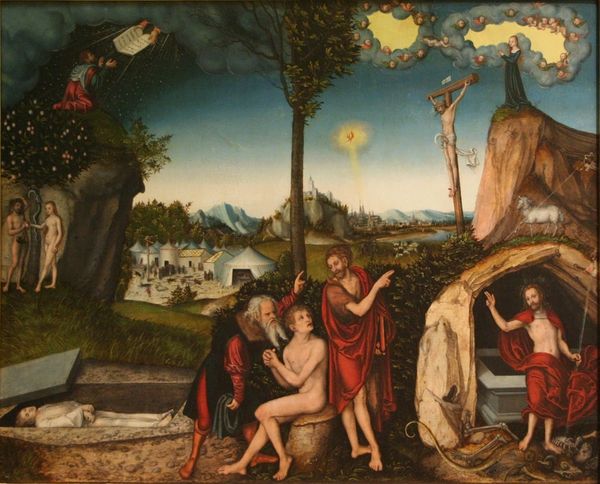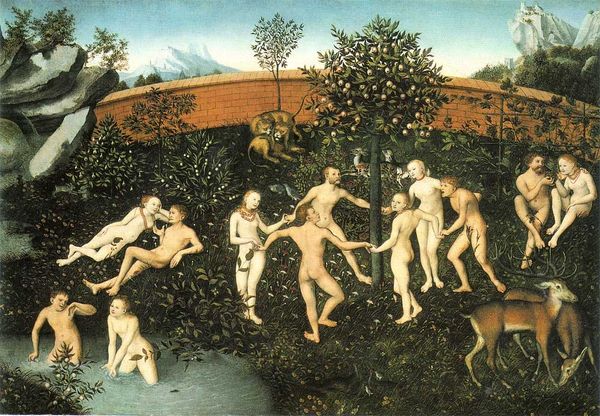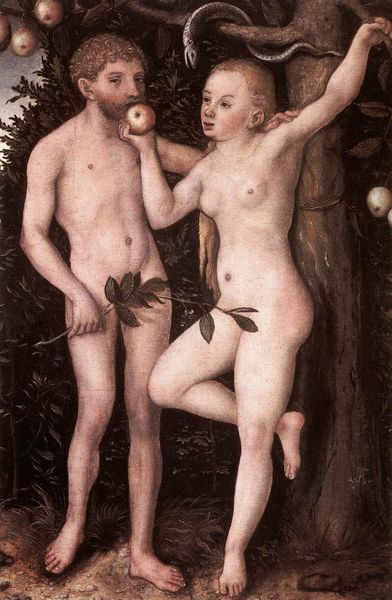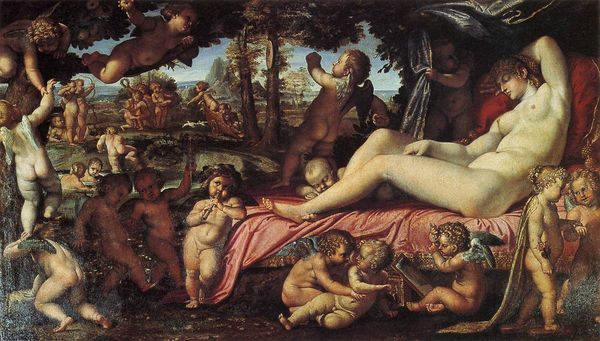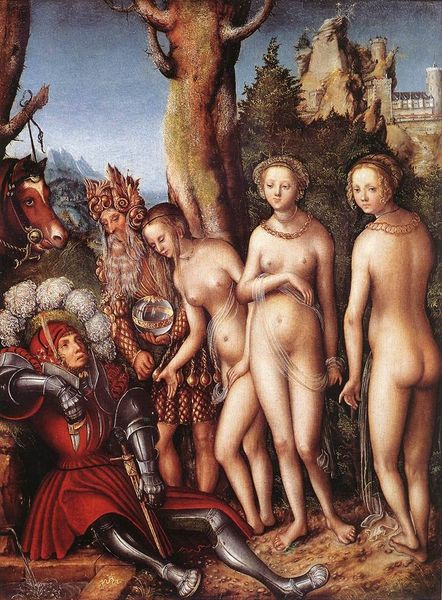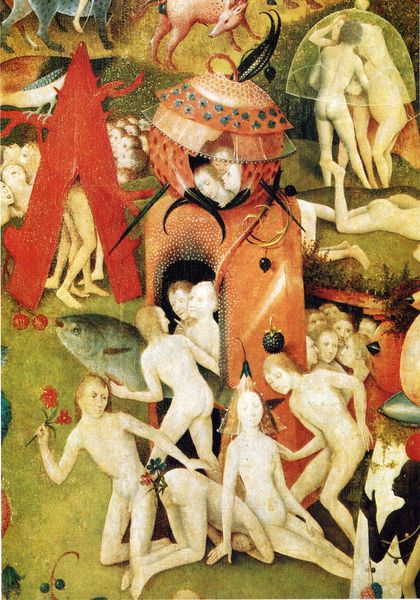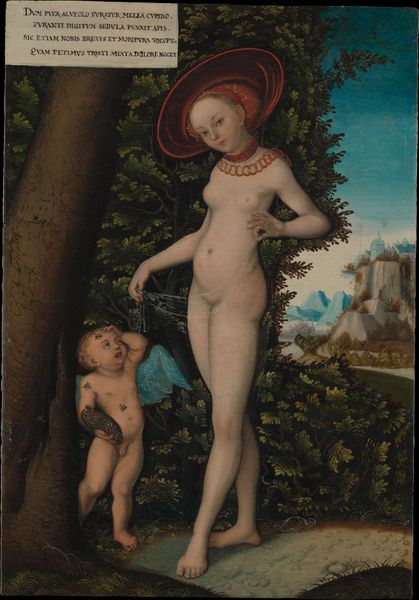
panel, oil-paint
#
panel
#
allegory
#
oil-paint
#
landscape
#
oil painting
#
mythology
#
watercolour illustration
#
northern-renaissance
#
nude
Copyright: Public Domain: Artvee
Editor: So, here we have Lucas Cranach the Elder's "The Judgment of Paris," painted around 1528. It's an oil on panel, and I find it fascinating how Cranach merges a classical subject with such a distinctly Northern Renaissance style. What first strikes me is how... courtly everyone appears, almost staged. What do you see in this piece, beyond the immediate narrative? Curator: I see a tapestry of interwoven symbols. Consider the figure of Cupid overhead, bow drawn. He’s not merely an indicator of love, but a pointed commentary on the irrationality of desire, the very force that compels Paris to make his fateful judgment. What are the potential repercussions? How does he come to this choice? Editor: Well, it's the classic tale: Paris has to judge which goddess is the fairest—Venus, Juno, or Minerva. He chooses Venus, who promised him the most beautiful woman in the world, Helen, leading to the Trojan War. It's interesting that you call Cupid's arrow irrational since this tale feels very formative, the type that persists throughout our own culture in unexpected ways. Curator: Exactly! Cranach presents us with a visual encoding of cultural memory. Look at the attire—or lack thereof. The goddesses' nudity isn’t purely about aesthetics; it evokes classical ideals of beauty, but their jewelry grounds them in the 16th century, connecting this timeless myth to a specific moment and the values related to that. Also notice how the choice of his setting— what might that suggest to his contemporary viewer? Editor: I guess a romanticised vision of the Germanic forest becomes linked with classical ideals in that setting, where the architecture is distant, fantastical, or implied only. It makes sense. Curator: And isn't the consequence well known, yet Cranach is pointing out this eternal challenge to reconcile our desires, our ideals, and their real-world consequences? How often are these beautiful lies perpetuated today? Editor: I hadn’t considered how much it challenges viewers to question the value systems they take for granted. Thanks.
Comments
No comments
Be the first to comment and join the conversation on the ultimate creative platform.
